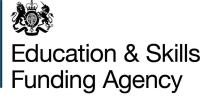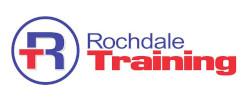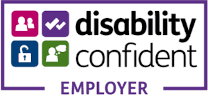Early Years Practitioner Apprenticeship - Crescent Nursery
Summary
We’re looking for a fun, reliable, and enthusiastic team player to join our nursery as a Nursery Practitioner. You’ll need to be hardworking, creative, patient, and have a genuine passion for working with children. Punctuality, confidentiality, and a good sense of humour are a must!
- Annual wage
- £11,778 a year
Minimum wage rates (opens in new tab)
The weekly wage will be £7.55 for the first year, rising to the National Minimum/Living Wage thereafter at £10.00 per hour for those aged 18-20, or £12.21 per hour for those aged over 21.
- Training course
- Early years practitioner
- Hours
- The working week will be Monday to Friday. Working Times: 8.30 am to 3.30 pm with an unpaid lunch break.
30 hours a week
- Start date
-
Sunday 16 November 2025
- Duration
-
12 Months
- Positions available
-
1
Work
As an apprentice, you’ll work at a company and get hands-on experience. You’ll gain new skills and work alongside experienced staff.
What you’ll do at work
- Able to care for and supervise the children, regarding their physical, emotional and intellectual needs.
- Work with the other staff on planning and preparation of activities to meet children's individual needs and liaise with parents.
- Keep developmental records and observations.
- Provide positive management of children's behaviour.
- Be involved in the preparation, care, cleanliness and maintenance of the playrooms and equipment.
- Keep accident, incident and risk assessment records.
- Supervise meals/snack times. Build and maintain strong partnerships with parents.
- Support a commitment to the theory and practice of equal opportunities.
- Provide feedback on any issues or opportunities identified around the site that could impact the quality of care provided.
- Support the team in the upkeep of site rooms, displays resources, etc.
Where you’ll work
1 DEVON STREET, ROCHDALE, OL11 1HN
Check your travel to work
Directions map will appear here
Training
An apprenticeship includes regular training with a college or other training organisation. At least 20% of your working hours will be spent training or studying.
College or training organisation
ROCHDALE TRAINING ASSOCIATION LIMITED
Your training course
Early years practitioner
Equal to Level 2 (GCSE)
Course contents
- Support babies and young children through a range of transitions and significant events. e.g moving onto school, moving house or the birth of a sibling.
- Recognise when a child is in danger, at risk of serious harm or abuse and explain the procedures to be followed to protect them. Types of abuse including: domestic, neglect , physical, emotional, and sexual abuse.
- Identify risks and hazards in the provision and during off site visits relating to both children and staff and visitors and follow reporting procedures.
- Use prevention and control of infection techniques for hand washing and food preparation and hygiene, deal with spillages safely, safe disposal of waste, using correct personal protective equipment.
- Use equipment, furniture and materials safely and securely, following the manufacturers’ instructions and provision’s requirements.
- Encourage children to be aware of personal safety and the safety of others and develop personal hygiene practices (including oral hygiene).
- Promote health and wellbeing in the provision by encouraging babies and young children to consume healthy, balanced and nutritious meals, snacks and drinks appropriate for their age and be physically active through planned and spontaneous activity throughout the day, both indoors and outdoors.
- Carry out respectful care routines appropriate to the development, stage, dignity and needs of the child, including eating (feeding and weaning or complementary feeding), nappy changing procedures, potty or toilet training, care of skin, teeth and hair and rest and sleep provision.
- Communicate with all children, including those for whom English is an additional language and those with additional needs, in ways that will be understood. This includes verbal and non-verbal communication.
- Extend children’s development and learning through verbal and non-verbal communication.
- Encourage babies and young children to use a range of communication methods.
- Use a range of appropriate communication methods to share information with children, parents or carers and other professionals.
- Work with colleagues to identify and plan educational programmes to support children’s holistic development through a range of play, creativity, social development and learning.
- Implement and review activities to support children’s play, creativity, social development and learning and clear up after activities.
- Observe children, assess, plan and record the outcomes, share results accurately and confidentially in line with expected statutory and the provision’s requirements.
- Use learning activities to support early language development.
- Support children’s early interest and development in mark making, writing, reading and being read to.
- Support children’s interest and development in mathematical learning including numbers, number patterns, counting, sorting and matching.
- Support the graduated approach for the assessment, planning, implementation and reviewing of each baby’s and young child's individual plan for their care and participation.
- Work in ways that value and respect the developmental needs and stages of babies and children.
- Use feedback and mentoring or supervision to identify and support areas for development, goals and career opportunities.
- Work co-operatively with colleagues, other professionals and agencies to meet the needs of babies and young children and enable them to progress.
- Work alongside parents or carers and recognise their role in the baby or child’s health, well-being, learning and development.
- Encourage parents or carers to take an active role in the baby's or child’s care, play, learning and development.
- Demonstrate how to share information with parents or carers about the importance of healthy, balanced and nutritious diets for their child, looking after teeth and being physically active.
- Support babies and young children through a range of transitions and significant events. e.g moving onto school, moving house or the birth of a sibling.
- Recognise when a child is in danger, at risk of serious harm or abuse and explain the procedures to be followed to protect them. Types of abuse including: domestic, neglect , physical, emotional, and sexual abuse.
- Identify risks and hazards in the provision and during off site visits relating to both children and staff and visitors and follow reporting procedures.
- Use prevention and control of infection techniques for hand washing and food preparation and hygiene, deal with spillages safely, safe disposal of waste, using correct personal protective equipment.
- Use equipment, furniture and materials safely and securely, following the manufacturers’ instructions and provision’s requirements.
- Encourage children to be aware of personal safety and the safety of others and develop personal hygiene practices (including oral hygiene).
- Promote health and wellbeing in the provision by encouraging babies and young children to consume healthy, balanced and nutritious meals, snacks and drinks appropriate for their age and be physically active through planned and spontaneous activity throughout the day, both indoors and outdoors.
- Carry out respectful care routines appropriate to the development, stage, dignity and needs of the child, including eating (feeding and weaning or complementary feeding), nappy changing procedures, potty or toilet training, care of skin, teeth and hair and rest and sleep provision.
- Communicate with all children, including those for whom English is an additional language and those with additional needs, in ways that will be understood. This includes verbal and non-verbal communication.
- Extend children’s development and learning through verbal and non-verbal communication.
- Encourage babies and young children to use a range of communication methods.
- Use a range of appropriate communication methods to share information with children, parents or carers and other professionals.
- Work with colleagues to identify and plan educational programmes to support children’s holistic development through a range of play, creativity, social development and learning.
- Implement and review activities to support children’s play, creativity, social development and learning and clear up after activities.
- Observe children, assess, plan and record the outcomes, share results accurately and confidentially in line with expected statutory and the provision’s requirements.
- Use learning activities to support early language development.
- Support children’s early interest and development in mark making, writing, reading and being read to.
- Support children’s interest and development in mathematical learning including numbers, number patterns, counting, sorting and matching.
- Support the graduated approach for the assessment, planning, implementation and reviewing of each baby’s and young child's individual plan for their care and participation.
- Work in ways that value and respect the developmental needs and stages of babies and children.
- Use feedback and mentoring or supervision to identify and support areas for development, goals and career opportunities.
- Work co-operatively with colleagues, other professionals and agencies to meet the needs of babies and young children and enable them to progress.
- Work alongside parents or carers and recognise their role in the baby or child’s health, well-being, learning and development.
- Encourage parents or carers to take an active role in the baby's or child’s care, play, learning and development.
- Demonstrate how to share information with parents or carers about the importance of healthy, balanced and nutritious diets for their child, looking after teeth and being physically active.
Your training plan
Full training to be given in partnership with Rochdale Training
Requirements
Desired qualifications
- GCSE Maths and English (Grade Grade 4/C or above) desirable
Let the company know about other relevant qualifications and industry experience you have. They can adjust the apprenticeship to reflect what you already know.
Skills
- Team working
- Respond to changing situations
- Able to keep records accurate
- Management of behaviour
Other requirements
Please research the location of Rochdale Training as well as the location of Crescent Day Nursery to ensure that you can travel to both locations. Apprentices are paid for their normal working hours and training that's part of their apprenticeship (usually one day per week). The Apprenticeship National Minimum Wage guide is updated every April (ANMW): https://www.gov.uk/national-minimum-wage-rates
About this company
Our nursery provides high-quality, play-based childcare for children aged 2–4 in a caring environment. Our qualified practitioners focus on ongoing professional development and work closely with local agencies to support children’s learning and community awareness. Activities are planned around each child, with regular assessments and learning journeys to track progress and enable early intervention when needed. We maintain strong links with local schools for smooth transitions to Key Stage 1 and prioritise excellent communication with parents. Families are encouraged to be actively involved in their child’s education through daily updates, newsletters, and access to learning journeys. Any concerns about a child’s development are addressed promptly and with full support.
https://www.crescentnursery.net/ (opens in new tab)
After this apprenticeship
Full Training provided, leading to potentially full-time employment.
Ask a question
The contact for this apprenticeship is:
Cresent Nursery
Jason Wales
jwales@rochdaletraining.co.uk
07860919380



















